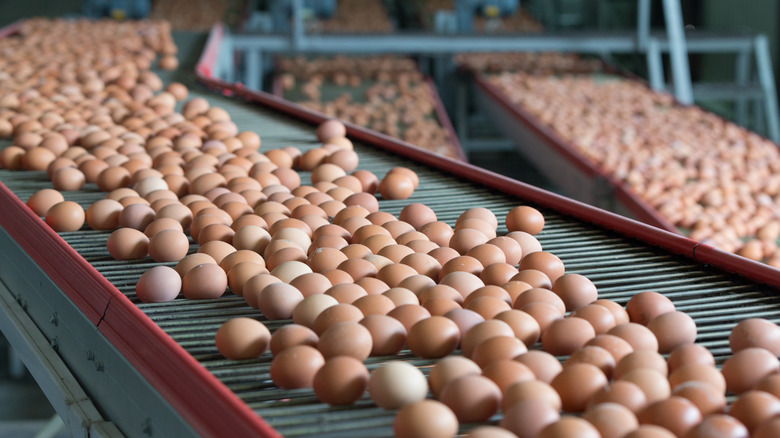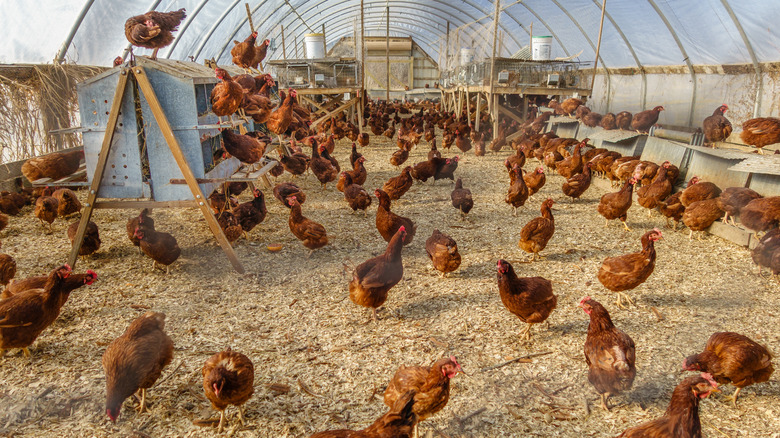Why Massachusetts Might Soon Experience An Egg Shortage
The Boston Globe is calling it "egg-mageddon," although "egg-pocalypse" works, too. Don't worry — despite the Biblical language, the world isn't ending when the calendar turns to 2022. (Climate scientists are giving us a little more time than that.) But a voter-approved law is scheduled to go into effect on January 1 in Massachusetts that could make eggs scarce and much more expensive in that state.
Voters started the clock on this doomsday scenario for people's brunch plans back in 2016, when they overwhelmingly supported a measure that will require all eggs sold in Massachusetts to come from cage-free hens. The law defined "cage-free" as 1.5 square feet of living space per chicken, according to Boston.com. (For comparison, The Humane Society recommends at least 7.5 square feet of space for pet guinea pigs.) In other states, just 1 square foot per bird qualifies as cage-free.
A lot has changed in the chicken industrial complex since Massachusetts voters passed the 2016 measure, known as Question 3. Over the past few years, cage-free factory farms nationally have adopted an aviary-like layout with 1 square foot per hen. The new coops have different levels, to enable birds to climb and perch. Aware of this recent development, some Massachusetts lawmakers have been trying to change the new law so it would allow eggs sold in the state to come from farms with the aviary setup, with 1 square foot per hen.
Some egg farms say they won't sell to Massachusetts if the new law takes effect
All Massachusetts farms are in compliance with the 1.5-foot rule, according to The Boston Globe, but they can't supply all of the eggs consumed in the state. Hillandale Farms, Massachusetts' biggest egg supplier, invested $85 million in converting its Connecticut chicken farms to the aviary setup with 1 square foot per bird (via Boston.com). Executives at Hillandale were reluctantly considering the idea of reducing their chicken population by one third so they could continue to sell eggs in Massachusetts. Other out-of-state farms have said they won't bother selling eggs in Massachusetts, if the new rule takes effect on January 1.
Even some of the animal rights groups that backed the 2016 voter initiative now say they agree with state lawmakers who are trying to change the law to allow aviary systems and 1 square foot per hen. But not everyone likes the proposed change. The Humane Farming Association, an animal rights group in California, sued Massachusetts to pressure the state to put the new rules in place. The Massachusetts Farm Bureau, which represents farmers' interests, also opposes the proposed change to 1 square foot per bird with climbing and perching space. Now that all chicken farms in the state are in compliance with the 1.5-foot rule, bureau officials believe out-of-state egg producers would have an unfair advantage by being able to sell eggs in Massachusetts without meeting the 1.5-foot requirement.

